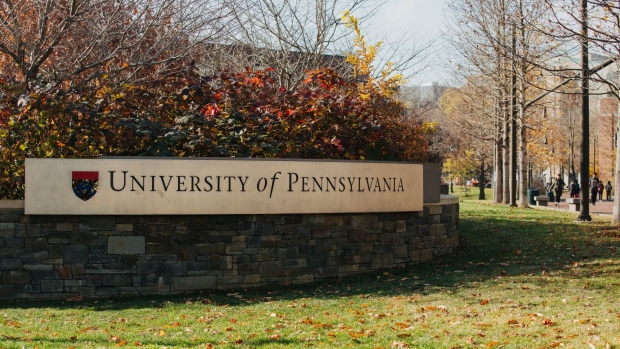Jan 25, 2024
Penn Gets $84 Million in Biggest Gift Since President’s Ouster
, Bloomberg News

(Bloomberg) -- The University of Pennsylvania received an $84 million donation from the former chief executive officer of Merck & Co., the biggest publicly disclosed donation since the school president was ousted amid a backlash over antisemitism.
The gift from alumnus Roy Vagelos and his wife, Diana, is the largest ever to the School of Arts & Sciences, the Ivy League university said in a statement. The donation will fund a permanent endowment for the Vagelos Institute for Energy Science and Technology, with $50 million to be put toward improving graduate education in chemistry, including the creation of 20 new Vagelos fellows.
“We hope that these funds will also help make this work more accessible and increase diversity among faculty and students pursuing these solutions,” Vagelos said. “We are proud to help keep Penn at the forefront of science education and research.”
Read More: Penn Leaders Out After Genocide Response, Alumni Pressure
Vagelos, 94, graduated from Penn in 1950 before receiving a medical degree from Columbia University. He made his fortune in the pharmaceutical industry, serving as CEO of Merck and then as chairman of biotech company Regeneron Pharmaceuticals Inc., a post he held until June. At Penn, he chaired the university’s board of trustees in the 1990s.
The donation comes as the Penn campus remains roiled in controversy, with many wealthy alumni closing their pocketbooks amid criticism of how school leadership handled the aftermath of the Oct. 7 Hamas attack on Israel. President Liz Magill and board chair Scott Bok resigned after coming under intense pressure from alumni, donors and lawmakers in the row over antisemitism on campus.
The criticism intensified after Magill testified before Congress on Dec. 5 in a widely panned performance, when she and the leaders of Harvard University and the Massachusetts Institute of Technology failed to say outright that calling for the genocide of Jews is against school policy. Magill stepped down days later, and Harvard’s Claudine Gay resigned earlier this month.
Penn was also sued by a pair of students who claim the campus was a hotbed of antisemitism even before Hamas attacked Israel on Oct. 7. In September, the school hosted a Palestinian literature festival, despite concerns expressed by donors and alumni that some of the speakers were antisemitic.
Even though Penn’s leadership has changed, it still faces numerous federal investigations into antisemitism.
--With assistance from Janet Lorin.
©2024 Bloomberg L.P.


